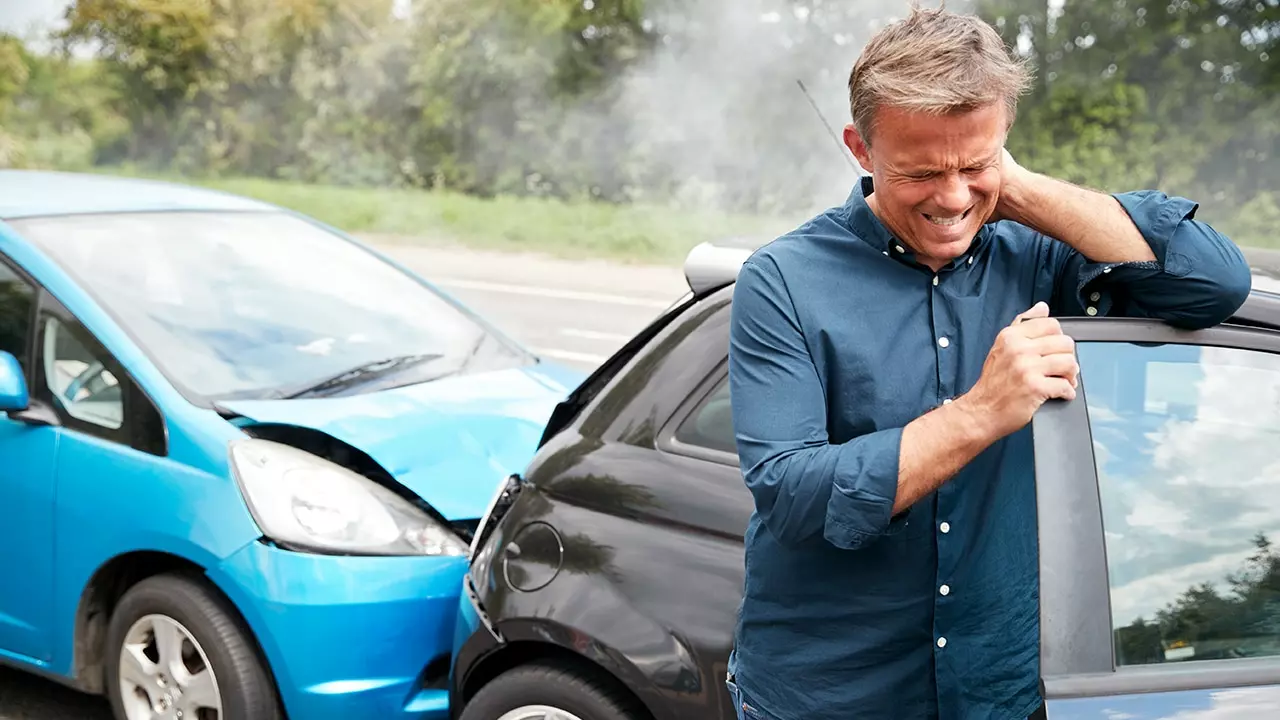Auto collision insurance is a type of coverage that pays for repairs or replacements if your vehicle is damaged in an accident with another vehicle or object. Unlike liability insurance, which covers damage to other people’s property, collision insurance specifically protects your car. This coverage is essential to ensure that you are not left with large out-of-pocket costs after an accident.
Why Collision Insurance is Important
Collision coverage is important because it provides financial protection against the high costs of vehicle repair or replacement. Accidents can happen to even the most careful drivers, and purchasing collision coverage will ensure that your investment in your vehicle is protected. This type of insurance is especially valuable for newer or more expensive cars.
How collision coverage differs from other types of auto insurance
Collision coverage is different from other types of auto insurance, such as comprehensive coverage and liability coverage. While comprehensive coverage covers non-collision-related events such as theft, vandalism and natural disasters, and liability coverage covers damage you cause to others, collision coverage specifically covers damage to your vehicle caused by an accident.
Types of Collision Insurance Coverage
Standard collision coverage
Standard collision coverage pays for damage your vehicle sustains when it is involved in an accident with another vehicle or object, regardless of who is at fault.
Limited collision coverage
Limited collision coverage only pays compensation if you were not at fault for the accident. If you are at fault, you will not receive any compensation under this insurance.
Comprehensive collision coverage
Comprehensive collision coverage offers the most comprehensive protection, covering damage regardless of fault and often including additional benefits such as car rental reimbursement.
What collision insurance covers
Accidents with other vehicles
Collision insurance covers damage caused by an accident with another vehicle, whether you collide with another vehicle on the road or in a parking lot.
bicycle accident
This coverage also applies to one-sided accidents, for example when you hit a tree, guardrail or other stationary object.
hit-and-run incident
Collision coverage can cover damage to your vehicle if the responsible party in a hit-and-run accident is unknown or uninsured.
Collision with objects
Whether you accidentally hit a post or fence, collision coverage will cover the repair or replacement of your vehicle.
Benefits of collision car insurance
financial security
Collision coverage provides financial protection by paying for repairs or replacements, easing the financial burden after an accident.
Inner peace
Knowing that your vehicle is covered in the event of an accident can give you peace of mind and allow you to drive with confidence.
Vehicle lease or financing required
If you lease or finance a vehicle, lenders often require collision coverage to protect their investment.
Factors That Affect Collision Insurance Rates
Vehicle make and model
The make and model of your vehicle can significantly affect your collision insurance rates. Luxury or expensive cars often require higher insurance costs due to higher repair or replacement costs.
Age and experience of the driver
Younger, less experienced drivers may face higher premiums, while older, more experienced drivers often benefit from lower rates.
Location and driving environment
Where you live and drive can also affect your insurance rates. Urban areas with more traffic and accidents generally have higher premiums.
Claim history
Your past claims history can affect your current rates. Multiple claims can result in higher premiums, while a clean claim record can result in a discount.
Deductible and premiums
Choosing a higher deductible can lower your premium, but it means you’ll have to pay more out of pocket when you make a claim. Balancing your deductible and premium is the key to finding affordable accident coverage.
How to choose the right car insurance
Assess your coverage needs
Assess your vehicle’s value, your driving record, and risk factors to determine the appropriate level of collision coverage.
Compare different insurance companies
Research and compare policies from different insurers. View coverage options, premiums, deductibles and customer ratings
Policy options and attractive discounts, including multi-policy discounts and safe drivers.
All states
Allstate offers comprehensive accident coverage, including customizable options and a variety of discounts, with an emphasis on customer satisfaction and financial stability.
Tips to save on car insurance
Maintain a clean driving record
By avoiding accidents and traffic violations, you can keep your premiums lower and you may qualify for a safe driver discount.
Bundling policy
Combine collision coverage with other policies, such as homeowners or renters insurance, to get discounts from your insurance company.
Install security features
If you equip your vehicle with safety features such as anti-lock brakes, airbags and restraint systems, you can get discounts on your collision coverage.
Common Misconceptions About Collision Insurance
Only suitable for expensive cars
Collision coverage is beneficial for all vehicle types, not just luxury cars. A vehicle may incur enormous repair or replacement costs.
It covers all types of damage
Comprehensive insurance specifically covers damage caused by an accident with another vehicle or object. Coverage does not cover non-collision events covered by comprehensive insurance, such as theft or natural disasters.
Frequently Asked Questions
What does car insurance cover against collisions?
Collision car insurance covers vehicle damage resulting from an accident with another vehicle or object, as well as single accidents and collision incidents.
Is collision car insurance required by law?
No, collision coverage is not required by law, but lenders often require collision coverage when you lease or finance a vehicle.
How can you save on car collision insurance?
You can save on car insurance by maintaining good driving habits, bundling policies, installing safety features and choosing a higher deductible.
What is the difference between collision and comprehensive coverage?
Collision coverage covers damage caused by an accident with another vehicle or object, while comprehensive coverage covers non-collision-related events such as theft, vandalism and natural disasters.
If my car is old, do I need collision coverage?
Although not required, collision coverage for older cars can still be valuable if the cost of repair or replacement is significant compared to the value of the vehicle.
Can I choose a deductible for collision insurance?
Yes, most insurers allow you to choose your own risk. A higher deductible usually results in lower premiums, but also means higher out-of-pocket costs in the event of a claim.
finally
Understanding the basics of car insurance is crucial to ensuring that your vehicle is fully protected in the event of an accident. By evaluating your coverage needs, comparing insurance companies and taking advantage of discounts, you can find the collision insurance policy that best suits your needs and budget.



